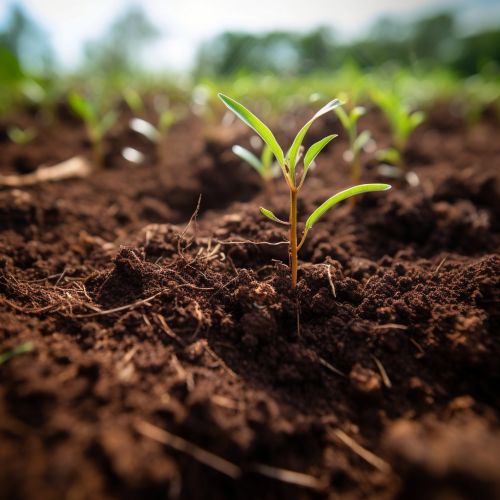The Role of Microbes in Soil Health and Crop Productivity
Introduction
Microbes, or microorganisms, play a crucial role in maintaining soil health and promoting crop productivity. These tiny, invisible organisms, which include bacteria, fungi, viruses, and other microscopic life forms, are essential components of the soil ecosystem. They contribute to soil fertility, nutrient cycling, and disease suppression, among other functions. This article delves into the complex world of soil microbes and their impact on soil health and crop productivity.
Soil Microbes and Their Functions
Soil is teeming with a diverse array of microbes that perform various functions. These functions are critical for maintaining the health and fertility of the soil, which in turn influences crop productivity.
Bacteria
Bacteria are the most abundant microorganisms in the soil. They are involved in various soil processes, including the decomposition of organic matter, nitrogen fixation, and nutrient cycling. Some bacteria, known as plant growth-promoting rhizobacteria (PGPR), can enhance plant growth and yield by producing plant hormones or suppressing plant diseases.
Fungi
Fungi are another group of important soil microorganisms. They help decompose organic matter and recycle nutrients in the soil. Some fungi, such as mycorrhizal fungi, form symbiotic relationships with plant roots, enhancing nutrient uptake and providing protection against soil-borne diseases.
Viruses
Viruses, though not as well-studied as bacteria and fungi, also play a role in the soil ecosystem. They can influence microbial populations and nutrient cycling by infecting and killing bacteria.
Impact of Soil Microbes on Soil Health
Soil health is a measure of the soil's ability to function as a living system. Microbes play a vital role in maintaining soil health by contributing to soil structure, nutrient cycling, and disease suppression.
Soil Structure
Microbes contribute to soil structure by producing substances that bind soil particles together, forming aggregates. This improves soil porosity and water-holding capacity, which are crucial for plant growth.
Nutrient Cycling
Microbes play a central role in nutrient cycling, the process by which nutrients are converted from one form to another and made available to plants. They decompose organic matter, releasing nutrients into the soil, and some microbes can convert atmospheric nitrogen into a form that plants can use.
Disease Suppression
Some soil microbes can suppress plant diseases by producing antimicrobial substances or outcompeting pathogenic microbes. This can reduce the need for chemical pesticides and improve crop health and yield.
Impact of Soil Microbes on Crop Productivity
The health and productivity of crops are closely tied to the health of the soil and its microbial community. Microbes can enhance crop productivity directly, by promoting plant growth and nutrient uptake, or indirectly, by improving soil health.


Direct Impact
Some microbes, such as PGPR and mycorrhizal fungi, can directly enhance plant growth and nutrient uptake. They can produce plant hormones, solubilize nutrients, or form symbiotic relationships with plant roots, improving plant health and yield.
Indirect Impact
Microbes can also indirectly enhance crop productivity by improving soil health. A healthy soil, rich in microbial life, has good structure, nutrient availability, and disease suppression, all of which contribute to crop productivity.
Conclusion
Microbes are integral to soil health and crop productivity. They contribute to soil structure, nutrient cycling, and disease suppression, and can directly and indirectly enhance crop productivity. Understanding and harnessing the power of soil microbes could pave the way for more sustainable and productive agricultural practices.
